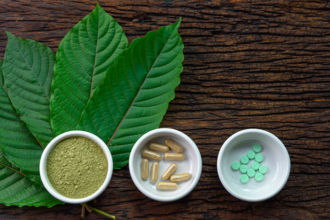To be sober, those with alcoholism or other drug addictions have been known to participate in several addiction recovery programs. These programs exist as both residential and non-residential options. In either case, the basis of the program is the same – an opportunity for addicts to sober up and mature through a series of steps, which start with surrendering to a power greater than oneself and culminating in taking daily action toward staying sober.
- Read ahead to find out more about how the program works –
- 12 Steps of Addiction Recovery Programs Explained :
- 1.) Surrender to a Power Greater Than Oneself
- 2.) Admit and Accept That You’re Powerless over your Addiction and That Life has Become Unmanageable.
- 3.) Recognize That the Addiction Recovery Program is Life-Changing
- 4.) Accept That the Addiction Recovery Program Requires One to Make Restitution for the Damage Caused by Their Actions While Under Influence.
- 5.) Commit to the Addiction Recovery Program and Follow the Advice Given by Those in Charge.
- 6.) Accept That One Cannot Get Sober Alone; You Need Help from Others.
- 7.) Make a List of Everyone You Have Harmed While Under Influence And Be Willing to Make Restitution to Them.
- 8.) Learn The Skills Necessary to Function as a Sober Member of Society.
- 9.) Develop a Relationship with a “Higher Power” That Can Guide You For The Rest Of Your Life.
- 10.) Continuously Testify That You Are Now Sober and You Have Freed Yourself From Addiction.
- 11.) Maintain a Positive Mental Outlook and Keep Away from Negative People.
- 12.) Help Other Sober Addicts Stay on the Path of Sobriety Through Sharing Their Experience, Strength, and Hope.
- To wrap up,
The 12 Steps of Recovery Program was created by Alcoholics Anonymous (AA) over 70 years ago as a spiritual program for helping alcoholics achieve sobriety. Since then, many other addiction recovery programs have adopted this format and focused on the same principles: drug and alcohol rehab facilities use these steps as their foundation to help addicts sober up and become productive members of society again.
Read ahead to find out more about how the program works –
12 Steps of Addiction Recovery Programs Explained :
1.) Surrender to a Power Greater Than Oneself
The first step in any addiction recovery program involves accepting that one cannot give themselves sober – only a “higher power” can do that. Again, this higher power can be anything the addict believes in, be it God or some other spiritual force. Accepting one’s powerlessness is usually not an easy process; many addicts will initially resist the concept.
2.) Admit and Accept That You’re Powerless over your Addiction and That Life has Become Unmanageable.
As sober living near me can attest, “coming clean” about one’s addiction is often the most difficult step of all. The individual must face up to their drug use and accept it as a truth, no matter how shameful it may be. Over time, addicts realize that secrecy only breeds more secrets and thus prevents them from sobering up for good.
For better recovery options, try the Recovery House in Nashville, TN!
3.) Recognize That the Addiction Recovery Program is Life-Changing
As many sober houses will attest, the decisions addicts make today are much different from those they made when they were high. Those who choose to quit drinking or using drugs need to realize that their past actions no longer define them.
They must adopt a “One Day at a Time” approach to life and focus on changing their present behavior rather than pondering over past deeds.
4.) Accept That the Addiction Recovery Program Requires One to Make Restitution for the Damage Caused by Their Actions While Under Influence.
Accepting responsibility for one’s actions while sober often entails compensating for harm done to others. This can include anything from apologizing profusely to helping repair damage caused while under the influence.
As a recovering addict, one should always make every effort to make amends for their past actions. Holistic recovery is made only through accepting our flaws and drawbacks and working on them consistently.
5.) Commit to the Addiction Recovery Program and Follow the Advice Given by Those in Charge.

By embracing sober living, addicts are committing themselves that they will take sober actions. These sober actions can include attending support groups or therapy sessions, committing to regular drug tests, or even reaching out to concerned family members for help.
As long as these sober actions are taken without reservation and hesitance, then this stage of the addiction recovery program is complete and considered to be a success!
All in all, a good sober living option would be to try the Threshold Recovery homes and drug and alcohol rehab Murfreesboro, TN.
6.) Accept That One Cannot Get Sober Alone; You Need Help from Others.
Addicts need to recognize that sober living requires not only personal effort but also the assistance of sober people who understand their predicament. It always helps to know that you’re not alone, there are others in the same boat as you and you can turn to them for help too. Seeking help from others is a very important element of recovery in the sober living process.
This can be done through regularly talking with other addicts in sober houses near you or by actively searching sober communities online.
7.) Make a List of Everyone You Have Harmed While Under Influence And Be Willing to Make Restitution to Them.
Addicts cannot sober up properly if they refuse to make amends. Some addicts may feel that nothing is owed; others will voluntarily offer restitution. In both cases, however, it is necessary for sober living to identify all those they have wronged and take steps toward making sober amends.
Owning up to your wrongdoings and accepting where you went wrong and could’ve done better is critical in your journey towards sobriety. This gives one the right kind of perspective on why it’s important to show empathy – towards not just others, but ourselves too.
8.) Learn The Skills Necessary to Function as a Sober Member of Society.
One sober living near me has mastered step eight through learning sober-friendly life skills such as stress management, effective communication techniques, and identifying relapse triggers. Moreover, addiction recovery programs will often offer sober living classes that can aid addicts in learning to live sober.
These sober actions can vary from maintaining relationships with sober friends and regularly attending meetings at drug rehab centers, to developing healthy coping mechanisms and writing sober messages to themselves.
These sober actions help addicts transition into sober living and in the future, sober life.
9.) Develop a Relationship with a “Higher Power” That Can Guide You For The Rest Of Your Life.
After initially surrendering control to a treatment facility, an individual must develop healthy coping mechanisms for dealing with stress and temptations in the future. One such coping mechanism is contacting one’s higher power whenever one feels tempted to use drugs or alcohol again.
This instills a sense of hope in the recovering patients, and hope is a very powerful emotion.
Addicts should also regularly attend meetings at drug rehab centers where they can connect with other sober people who will encourage their sober behavior and their journey towards sobriety. Moreover, if you’re a Murfreesboro Resident, do look up the Murfreesboro Rehabilitation Center by Threshold Recovery.
10.) Continuously Testify That You Are Now Sober and You Have Freed Yourself From Addiction.
Addicts need to remind themselves daily why they left their past life behind. This could be done by writing sober messages to themselves or reading sober quotes throughout the day. By constantly reminding themselves why their sober life is much better than their previous one, addicts are more likely to remain sober.
Furthermore, sober addicts should regularly attend sober gatherings where they can meet other sober people and share sober stories. Sharing sober stories is not only therapeutic but also gives one the chance to be heard by others who are experiencing similar sober struggles.
If you’re a Tennessee resident, there are some great sober living programs at Alcohol Rehab, Tennessee.
11.) Maintain a Positive Mental Outlook and Keep Away from Negative People.
Addicts should look for sober friends online who can provide support, encouragement, and exposure to sober events in their local communities. It’s essential to note that one can’t always stay positive. It’s just not humanly possible.
This is why cut yourself some slack if you’re feeling under the weather sometimes. Just keep in mind that at the end of the day, what’s most important is that you bounce back!
These positive sober actions learned at sober living programs will help addicts maintain sobriety while avoiding any negative people who could potentially tempt them away from sober living facilities. For more information, do try out Threshold Recovery’s Drug and Alcohol Rehab Murfreesboro TN.
12.) Help Other Sober Addicts Stay on the Path of Sobriety Through Sharing Their Experience, Strength, and Hope.

Once one has stayed clean long enough, they can pay it forward by helping other addicts achieve similar goals through sharing their own experiences with them. This sober action will help addicts with their sober lifestyle and encourage sober living in others.
Once sober, addicts need to live sober actions as healthy, contributing members of society. All these sober actions help with building up successful sober lifestyles – that can be used by other recovering addicts to stay sober.
To wrap up,
There are many such programs out there, but the basic principles of them remain relatively constant: total abstinence from alcohol or other drugs for long periods, frequent attendance at support group meetings to talk about one’s drug experiences, and guidance in everyday life issues (such as job searches, and the development of sober life skills such as stress management and sober problem-solving.)
The 12 Steps Recovery Program is helpful because it offers addicts a path to sober living that is both easy-to-follow and accessible. These sober living programs provide sober people with a sober community that will support them throughout their sober lifestyle.
It’s important to note that there’s no ONE way to sober up. Everyone has a different experience, and it’s okay if you don’t follow steps 1-12 exactly as stated above–as long as you continue on your mission to stay sober!














